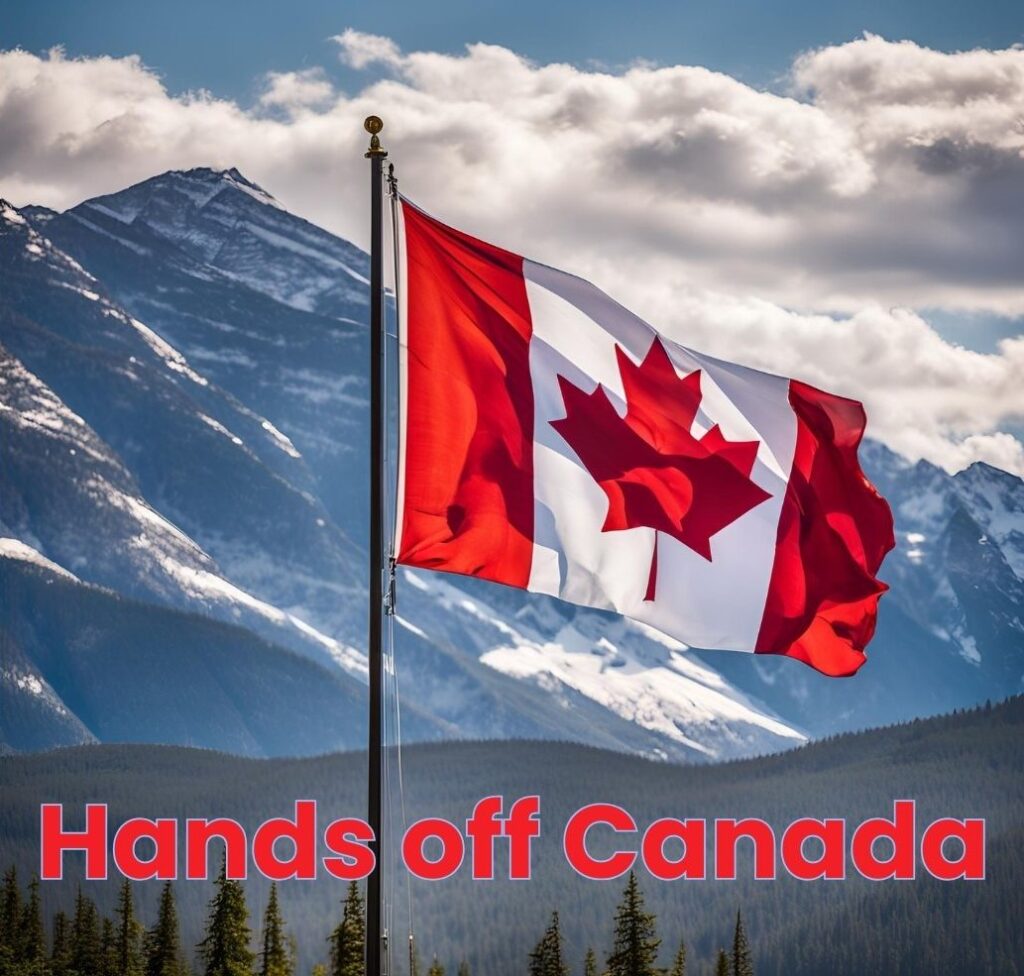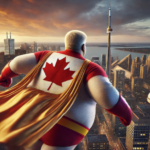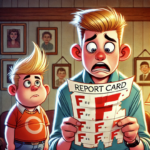
Hands off Canada!
In recent weeks, Donald Trump has “joked” about turning Canada into a 51st state.
Citing supposed concerns about illegal immigration from Canada and drug trafficking (fentanyl), Trump met with our PM Justin Trudeau on November 29th to discuss his proposed 25% tariff on all imports from Canada, effective January 20, 2025. Neither issue is particularly valid, and this move would raise prices on Canadian and Mexican goods for Americans while causing Canada and Mexico to lose important export revenue.
He accused Canada of “ripping off the US” because Canada exports more to the US than it imports from the US. Our population is 1/10th the size of the US population, so it’s hardly surprising that we import less.

Soon after, Trump made the offhand remark about annexing Canada as the 51st state. He deliberately disrespected Trudeau by repeatedly referring to him as “the governor of Canada.”
He then posted an AI-generated image of himself standing atop a mountain next to a Canadian flag. Presumably, signalling that he might wish to acquire his northern neighbour as the 51st state. (Photo: Truth Social via AP)
It is easy to say, “This is just Trump being Trump,” and that’s exactly what he wants. But, take a moment to think this through: an American President is threatening punishing tariffs on Canadian goods largely for the sake of pushing his weight around. And he’s coupling this with thinly veiled rhetoric about annexation—a tactic that distracts from his real agenda.
The core issue is that Trump doesn’t just want to dominate Canada rhetorically – he wants our resources. Canada is rich in fresh water, minerals, oil, and timber—resources that will become increasingly vital as global warming exacerbates scarcity worldwide. Trump’s bluster isn’t just a political game; it’s a strategic move to position the U.S. to claim these resources in the future. He is laying the groundwork for a future where the U.S. feels entitled to Canada’s wealth, using any means necessary.
Instead of the outrage I expected, I’m seeing something far worse: idle speculation from mainstream media about how it might happen.
Rather than framing Trump’s remarks as a direct threat to Canadian sovereignty and rather than exploring the real reasons behind his attacks, our media is indulging in a dangerous game of “what ifs” in exchange for clicks. This game risks normalizing an idea that should never have entered the realm of possibility in the first place.
Speculation Is Not Harmless
Speculating about the logistics of annexation—as some media outlets and pundits have done—plants a dangerous seed in the public’s mind that an event like this could be plausible or even, god forbid, acceptable.
Journalists obscure the dangers of Trump’s tactics by focusing on the ‘how’ of annexation instead of the ‘why’ and its potential consequences for Canadians. They downplay the threat and normalize these extreme ideas to our detriment.
We’ve seen this pattern before. What starts with an offhand remark or a so-called “joke” is followed by media speculation, desensitizing the public and paving the way for political manipulation. Ideas that once seemed absurd, like a Muslim travel ban or his “zero-tolerance plan” that resulted in separating children from their parents at the border and putting them in cages—became a reality under Trump’s administration.
Where Is the Alarm?
The lack of concern from our media and Canadians themselves is very troubling. Trump’s comments about annexation are not just innocent bluster; they’re an assertion of dominance, a dismissal of Canada’s sovereignty, and an open challenge to our identity as an independent nation. Trump has an “America First” agenda at the expense of his allies. He wants our resources, and he will bully us to get them. He will lie to Americans to make it seem as if we are somehow negotiating in bad faith or withholding resources that should be theirs.
The Role of Normalization
Normalization doesn’t happen overnight. It’s a gradual process where repeated exposure to extreme ideas makes them seem less extreme. By platforming idle speculation, we risk making the idea of annexation seem like just another policy debate instead of the outrageous overreach it truly is. And once an idea is normalized, it becomes much harder to fight against.
Think about it: if we’re already talking about “how” annexation could happen, what’s to stop someone from asking, “Why not?” The leap from “how” to “why not” isn’t as big as you might think, especially in today’s polarized political climate.
A Call to Action
Canadians can’t afford to be complacent. We need to see this kind of rhetoric for what it is: manipulative, aggressive, and completely unacceptable. And we need to hold the media accountable for their role in shaping the narrative. Speculation undermines our ability to recognize and resist threats to our sovereignty.
Our political leaders need to push back against any rhetoric undermining Canada’s autonomy and challenge the media to do better. This isn’t a time for neutrality or indifference. It’s a time for vigilance and action.
It’s up to all of us—journalists, politicians, and citizens alike—to reject this rhetoric outright and defend Canada’s sovereignty and the birthright of every Canadian to our resources with the urgency and seriousness it deserves. Because what starts as a joke can quickly become something much more dangerous.
As any parent knows, leaving a bully unchallenged in the schoolyard simply guarantees more bullying. As I finish this article, Trump is now talking about “taking back” the Panama Canal… What’s next?
Here is an excellent 7-minute video discussing Trump’s “concerns” and their validity: https://x.com/beynate/status/1868688185007685657












Sadly, there are some Canadians who think they would want to be part of the U.S. These are mostly Canadians who were part of the Freedumb convoy. I’m afraid as I could see this working out. Musk will interfere in our election as he interfered in the U.S. and now Germany. I read Musk’s goal is to rule the world and be a trillionaire
Hi Diane, The right-wing Americans (including Musk) are already interfering in our elections. They don’t want a more progressive and intelligent country to the North – it will weaken their hold on their citizens. And that is the case with the right-wing movement globally. They want to stamp out progressive countries. Canadians who would do well in the US can immigrate there. It costs money but they can usually do it. Canadians who are not doing as well here, think that they will do better in the US. And they haven’t got a hope in hell of immigrating. In any event, I think the Americans mostly want our resources. I think it would be much easier to simply get a weak right wing government installed here. And Poilievre, will oblige.
It truly worries me that Trump and his party of racist haters will take over the US very soon….. BUT…. I pray Canada stands their ground and never allows this to happen!
Well written article 🙂
Thanks Phyllis. I’m very concerned about it. I’m not super hopeful that Canada under the Conservatives will stand its ground.
Agree on that. Remember under Harper wanting to created a North American Union. Canadian Conservatives have become too much like the Republicans. They sold so many of our assets. They don’t have love for Canada as we do